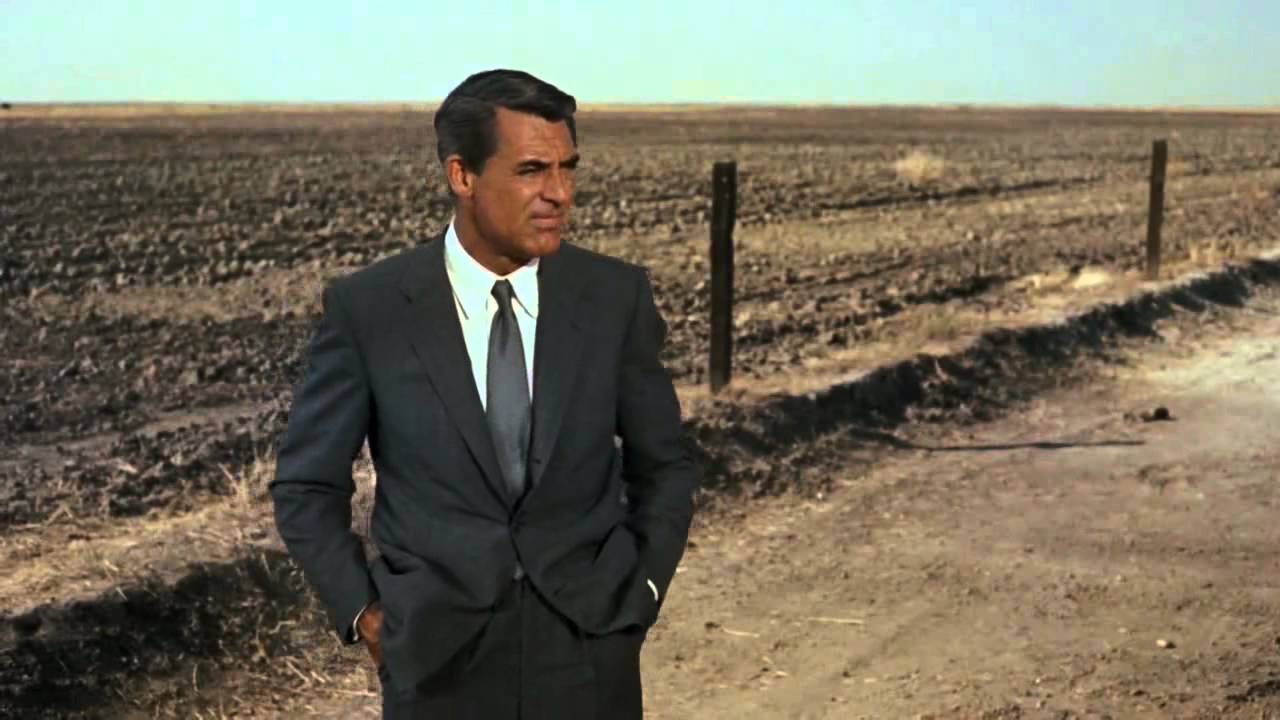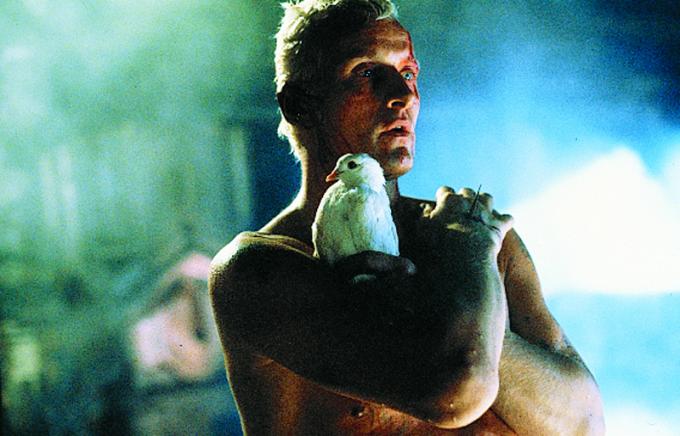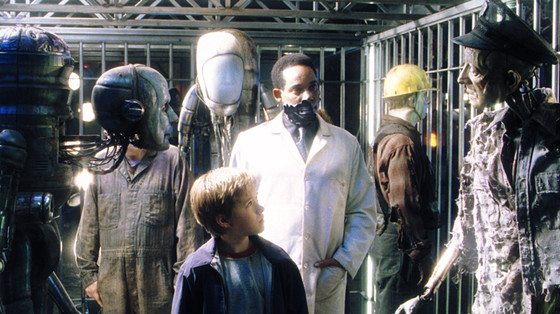6. North By Northwest (1959, Alfred Hitchcock)

This classic Cold War era thriller from Alfred Hitchcock follows a successful advertising agent Roger Thornhill (Cary Grant) as he is suddenly caught up in an intricate plot cooked up by the CIA, involving spies and government agents. He is seen as George Kaplan, a spy by both sides, and both sides wish to either protect his cover or unmask him. In essence, the CIA has invented Kaplan and transpose his identity onto Thornhill.
This film illustrates Baudrillard’s principle of the simulacrum. The CIA has gone to such great lengths to confuse counterintelligence that they have created a person and so desire his identity to remain secure. Kaplan has his own hotel room, wardrobe, and phone number.
This phony person has become so “real” that he has actually taken form in Thornhill. Yet it stills persists that Kaplan is a fabrication and no matter how real he may seem, he never was. With films like this (as well as the aforementioned “Wag the Dog”), it is no surprise that the idea of the simulacrum has become associated with government conspiracy. These ideas have become even more relevant in today’s world of drone warfare.
7. Inception (2009, Christopher Nolan)

No list about the blurring of the real and the simulated would be complete without at least one film from Christopher Nolan. The film presents us with the notion that our thoughts can be manipulated through technology (which is true to begin with, but this is different).
A team led by Cobb (Leonardo DiCaprio) plug themselves into someone’s dream in order to implant an idea. The different layers of dream worlds become indistinguishable from reality. Cobb and his wife got lost in their own dream world and his wife lost the ability to distinguish between reality and the dream. In essence, hyperreality took over her life.
This brings up the question of the simulacra versus reality. If what humans are capable of simulating becomes greater than reality, than reality may become an afterthought. Nolan presents dense ideas relating to what is real and what is unreal, and leaves the viewer questioning whether our their thoughts are really theirs.
8. Her (2013, Spike Jonze)

“Her” is a quiet meditation on the difficulties of living in a world that has become saturated by technology. The protagonist, Theodore (Joaquin Phoenix), is someone who has isolated himself from the world around him. He begins a relationship with his operating system.
In the film, everything becomes a simulation, even sex. The human dimension becomes lost as Theodore drifts into a sense of hyperreality. “Her” presents some distressing Baudrillardian ideas relating to our current state of relationships that are so heavily mediated by technology, yet packages them into a comedy of sorts.
9. Blade Runner (1982, Ridley Scott)

No discussion of postmodern philosophy can be complete without Ridley Scott’s sci-fi neo-noir. The film revolves around Rick Deckard (Harrison Ford), a former “Blade Runner” who is put in charge of finding and destroying replicants.
These were cyborgs who staged a coup in the past and still pose a danger to society. The replicants are virtually indistinguishable from humans and the lines between the two are blurred. The debates still rage over whether or not Deckard is himself a replicant, since he is so efficient in finding and disposing of other replicants.
Furthermore, the whole future world presented in “Blade Runner” is a sort of artificial façade composed of large (cyberpunk-esque) advertisements and constant construction to build more hollow buildings. In this sense, the need to destroy the replicants takes on a new meaning.
Humans must rid their world of these cyborgs to preserve and reinforce the idea that their world is real, when in reality, this future is very much unreal, or to use Baudrillard’s term, hyperreal. Paradoxically, the citizens resist the simulacrum yet live in a fake world.
10. A.I. Artificial Intelligence (2001, Steven Spielberg)

Steven Spielberg, in his heyday, made films with themes relating to the separation and unity of the family. “A.I. Artificial Intelligence” reflects one of these films. It was originally a Stanley Kubrick project that Spielberg took over.
Spielberg introduces a sense of sentimentality to this film. It revolves around a family’s adoption of a robotic child, David (Haley Joel Osment), in the attempt to fill a void in their life that occurs when their only son goes into a coma. The connection to Baudrillard is already present in the title.
David learns to feel things that humans feel and he is only distinguishable from other boys through scientific methods. The film shows how the simulation may be able to eventually take the place of the real and how the lines between real and unreal can be blurred. Even when society attempts to get rid of these robots, they have still formed emotional bonds and it becomes harder to reject the simulation.
References:
1. Baudrillard, Jean. “The Critique of Originality: The Hyper-Realism of Simulation.” (n.d.): 145. Print.
2. Drucker, Susan J., and Robert S. Cathcart. “American Heroes in a Media Age.” Cresskill, NJ: Hampton, 1994. Print.
3. Kolker, Robert Phillip. “Steven Spielberg, War, Superheros, and Digital Mise En Scene.” A Cinema of Loneliness: Penn, Kubrick, Coppola, Scorsese, Altman. New York: Oxford UP, 1980. 264-66. Print.
Author Bio: Casey is originally from Chicago. He is Junior at New York University majoring in Cinema Studies with a minor in Film Production. He hopes to go on to Graduate school and eventually work in some creative component of the film industry.